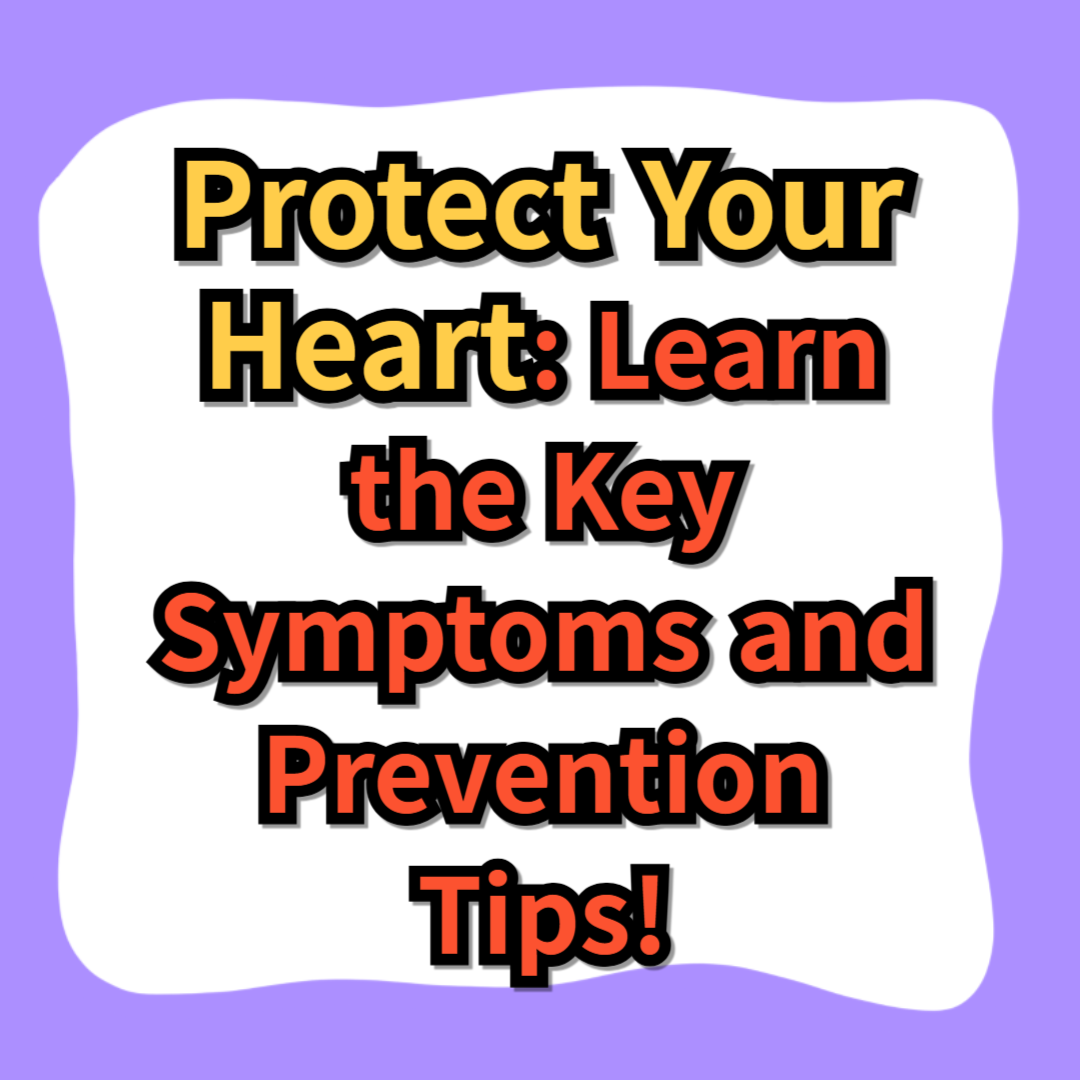Recognizing the Symptoms and Causes of Heart Disease
Heart disease is a leading cause of death worldwide, affecting millions of people each year. Understanding the symptoms, causes, and prevention of heart disease is crucial for early detection and treatment. In this blog post, we will explore the common signs and symptoms of heart disease, its causes, prevention strategies, and delve into the specifics of arrhythmias.
Common Symptoms of Heart Disease
Heart disease can manifest in various ways, and its symptoms can vary depending on the type of heart condition. Here are some of the most common symptoms to watch out for:
Chest Pain or Discomfort
- Chest pain, also known as angina, is one of the most common symptoms of heart disease. It often feels like pressure, squeezing, fullness, or pain in the center of the chest. This discomfort can also spread to the shoulders, arms, neck, jaw, or back.
- Angina can be triggered by physical activity, stress, or even after eating a large meal. It usually lasts for a few minutes and goes away with rest or medication.
- If you experience chest pain that lasts longer than a few minutes or is accompanied by other symptoms like shortness of breath, seek medical attention immediately.
Shortness of Breath
- Shortness of breath, also known as dyspnea, can occur with or without chest pain. It may happen during physical activity or even while resting.
- This symptom occurs when the heart is unable to pump enough blood to meet the body’s needs, leading to a buildup of fluid in the lungs.
- If you find yourself frequently short of breath, especially during activities that didn’t previously cause this issue, it could be a sign of heart disease.
Fatigue and Weakness
- Feeling unusually tired or weak, even after getting enough rest, can be a symptom of heart disease. This fatigue can be persistent and may worsen with physical activity.
- Fatigue occurs because the heart is not pumping efficiently, leading to reduced blood flow to the muscles and organs.
- If you experience unexplained fatigue or weakness, it’s important to consult with a healthcare professional to determine the underlying cause.
Causes of Heart Disease
Heart disease can be caused by a variety of factors, many of which are related to lifestyle and environmental influences. Here are some of the primary causes:
Atherosclerosis
- Atherosclerosis is the buildup of fatty deposits (plaques) in the arteries, which can restrict blood flow to the heart and other parts of the body. This condition is often caused by high cholesterol, high blood pressure, and smoking.
- The plaques can harden and narrow the arteries, leading to heart attacks, strokes, and other cardiovascular issues.
High Blood Pressure
- High blood pressure, or hypertension, forces the heart to work harder to pump blood, which can weaken the heart over time.
- It can also damage the arteries, making them more susceptible to atherosclerosis and other heart conditions.
Lifestyle Factors
- Unhealthy lifestyle choices such as poor diet, lack of physical activity, excessive alcohol consumption, and smoking significantly increase the risk of heart disease.
- Obesity and diabetes are also major risk factors that can lead to heart disease.
Prevention of Heart Disease
Preventing heart disease involves making healthy lifestyle choices and managing existing health conditions. Here are some strategies to help protect your heart:
Healthy Diet
- Eating a balanced diet rich in fruits, vegetables, whole grains, lean proteins, and healthy fats can help reduce the risk of heart disease.
- Avoiding foods high in saturated fats, trans fats, cholesterol, and sodium is crucial for maintaining heart health.
Regular Exercise
- Engaging in regular physical activity, such as brisk walking, running, or cycling, can help maintain a healthy weight, lower blood pressure, and improve overall cardiovascular health.
- Aim for at least 150 minutes of moderate aerobic exercise or 75 minutes of vigorous exercise each week.
Avoid Smoking and Limit Alcohol
- Smoking is a major risk factor for heart disease, and quitting can significantly reduce your risk.
- Limiting alcohol consumption to moderate levels can also help protect your heart.
Manage Stress
- Chronic stress can contribute to heart disease by increasing blood pressure and leading to unhealthy coping mechanisms such as overeating or smoking.
- Practicing stress management techniques like meditation, yoga, and deep breathing exercises can help maintain heart health.
Understanding Arrhythmias
Arrhythmias are irregularities in the heartbeat, which can occur when the electrical impulses that coordinate heartbeats don’t work properly. Here are some key points about arrhythmias:
Types of Arrhythmias
- Tachycardia: A fast heart rate, typically over 100 beats per minute.
- Bradycardia: A slow heart rate, typically under 60 beats per minute.
- Atrial Fibrillation: A common type of arrhythmia where the heart beats irregularly and often rapidly.
Symptoms of Arrhythmias
- Symptoms can include palpitations, dizziness, fainting, shortness of breath, and chest pain.
- Some arrhythmias may not cause any noticeable symptoms but can still be detected through medical tests.
Causes and Treatment
- Arrhythmias can be caused by heart disease, electrolyte imbalances, or certain medications.
- Treatment options include medications, lifestyle changes, and medical procedures such as pacemaker implantation or catheter ablation.
Related Articles You Might Enjoy. Top5 Supplements for Managing Polycystic Ovary Syndrome (PCOS)
